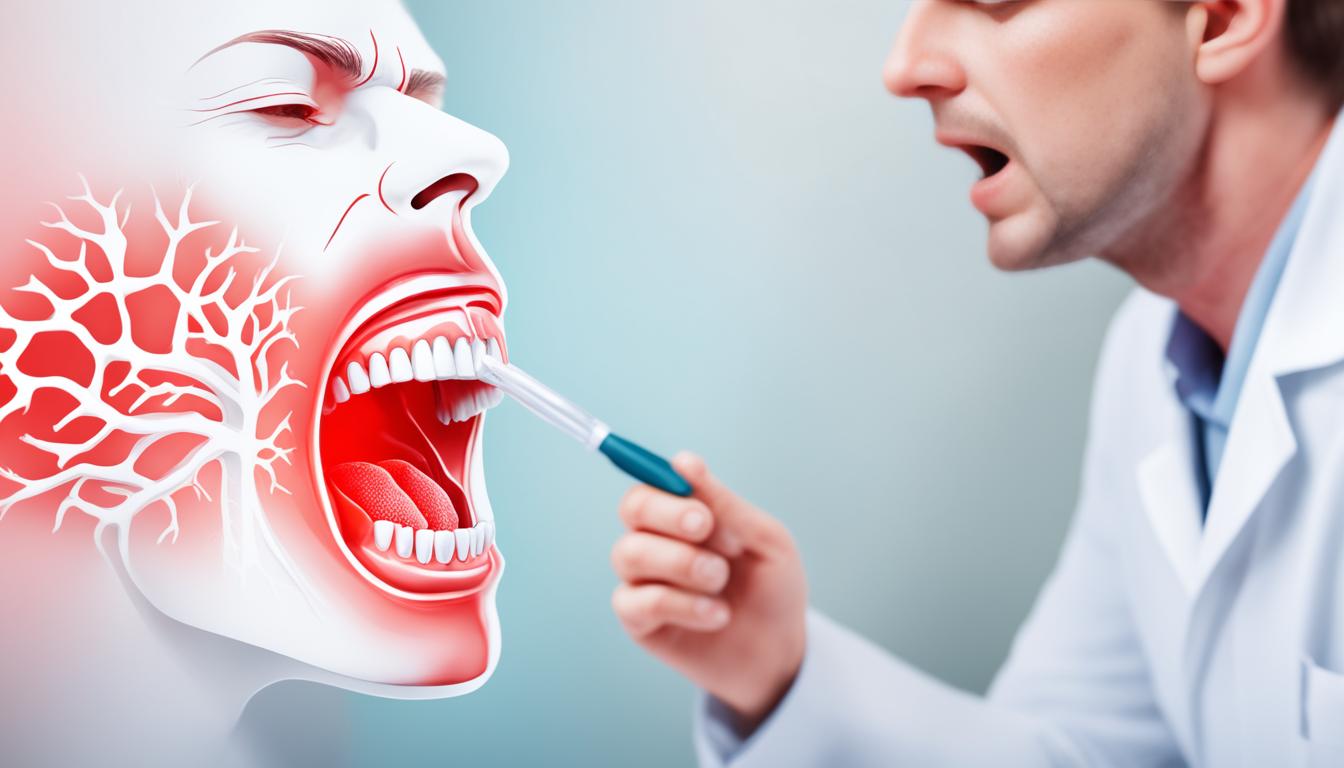Stomatodynia is a mouth condition that causes a persistent burning feeling, mostly on the tongue and lips. This issue can really affect someone’s life, so it’s important to know about its symptoms, causes, how it’s diagnosed, and what treatments are available.
The exact reason behind stomatodynia is still a mystery, but it might be linked to nerve or inflammation issues. People suffering from this condition often feel like their mouth is burning and can also experience pain, dryness, changes in taste, and general discomfort.
Doctors work hard to diagnose stomatodynia. They take a detailed medical history, give a thorough exam, and exclude other possible causes of mouth pain. Doing these steps helps them reach the right diagnosis.
There are ways to manage the pain and discomfort of stomatodynia. Treatment can involve medications like pain relievers, antidepressants, or anticonvulsants. Lifestyle changes and certain therapies might also help. Things like avoiding triggers, keeping your mouth clean, and managing stress can make a difference.
Some alternative treatments, like cognitive-behavioral therapy and acupuncture, could also offer relief. Stem cell therapy is another promising approach. It targets the damaged tissues in the mouth, aiming to offer lasting relief for stomatodynia patients.
Key Takeaways:
- Stomatodynia is characterized by persistent burning or pain in the mouth, mainly on the tongue and lips.
- The exact cause of stomatodynia is not fully understood, but it is believed to be related to nerve or inflammatory issues.
- Diagnosis of stomatodynia involves a thorough medical history assessment, physical examination, and elimination of other possible causes.
- Treatment options for stomatodynia include medications, lifestyle changes, and alternative therapies such as cognitive-behavioral therapy or acupuncture.
- Stem cell therapy is being explored as a potential treatment for stomatodynia, leveraging the regenerative properties of stem cells to provide long-term relief.
Causes and Diagnosis of Stomatodynia
Understanding what causes stomatodynia is key to its diagnosis and treatment. Even though the root causes aren’t fully clear, scientists think that this condition is likely sparked by many different things.
Nerve problems might be a cause. Strange activity in the nerves of the mouth could add to the constant burning feeling that people with this condition feel. Changes in hormones, like during menopause, might also start these symptoms.
Stomatodynia could also stem from oral infections. If someone has a fungal or bacterial infection in their mouth, it might lead to soreness and discomfort. This, in turn, can lead to symptoms of stomatodynia.
Lacking certain nutrients can play a role too. Not getting enough vitamins or minerals can hurt the health of your mouth, possibly leading to the conditions that cause oral burning syndrome.
The way someone feels emotionally could also play a big part. High stress, anxiety, or depression can make stomatodynia symptoms worse and harder to handle.
Some health issues make people more likely to get stomatodynia. These include diseases that make the body attack its own cells, such as Sjögren’s syndrome and some diseases that affect the mouth. Diabetes and thyroid problems have also been found to be connected to stomatodynia.
Diagnosing stomatodynia means carefully checking the patient’s past health, looking at their mouth, and making sure other causes of mouth pain are not present. Doctors might also do blood tests, take mouth swabs, and use images to check the health of the mouth. This helps rule out other diseases that can act like stomatodynia.
Risk Factors for Stomatodynia
| Factors | Description |
|---|---|
| Nerve Dysfunction | Abnormal sensory nerve activity in the mouth |
| Hormonal Changes | Menopause and hormonal fluctuations |
| Oral Infections | Fungal or bacterial infections in the mouth |
| Nutritional Deficiencies | Lack of essential vitamins or minerals |
| Psychological Factors | Stress, anxiety, and depression |
| Medical Conditions | Autoimmune disorders, diabetes, thyroid disorders |
Spotting stomatodynia needs a thorough look by healthcare teams and the patient working together. By finding the causes and making sure it’s not another disease, an exact diagnosis can lead to the right steps in treatment. This can help ease the symptoms of stomatodynia.
Treatment and Management of Stomatodynia
Treatments for stomatodynia focus on easing symptoms. Doctors might suggest using various drugs. These can include topical anesthetics, painkillers, or drugs to help with depression or seizures. Such medicines aim to lessen pain and discomfort.
Changing your lifestyle can also help. Try to avoid things that make your symptoms worse. Taking good care of your mouth and finding ways to reduce stress are crucial steps.
There are other ways to find relief. Therapies like cognitive-behavioral therapy and acupuncture can be quite useful. They deal with the mental and emotional side of stomatodynia. This can help you handle the pain better.
In the last few years, stem cell therapy has shown some hope. It uses stem cells to heal damaged tissues and decrease swelling in the mouth. But, we still need more studies to know for sure how well it works long-term.

